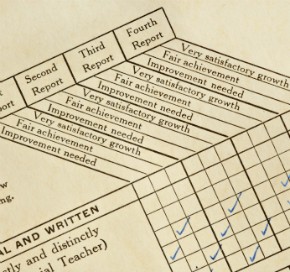Grading our work

Six years ago in New Haven, Connecticut, several hundred friends of Yale Divinity School gathered to honor four of the school’s distinguished alumni. Nai-Wang Kwok was unfamiliar to most of us in the room. He had flown in from Hong Kong the previous day—his first time back to campus in 45 years.
Kwok, who is ordained in the Presbyterian Church (PCUSA), was on hand to accept the Lux et Veritas, an award given each year to an individual with demonstrated excellence and distinction in ministering with Christlike compassion.
By all accounts, Nai-Wang Kwok is an impressive figure. He has devoted his life to the Christian community in Hong Kong, advocating for human rights, democracy, and justice. In addition to writing or editing more than 20 books, Kwok spent years working in the slums and public housing projects of Hong Kong. He has served as general secretary of the Hong Kong Christian Council and founder of the Hong Kong Christian Institute.




